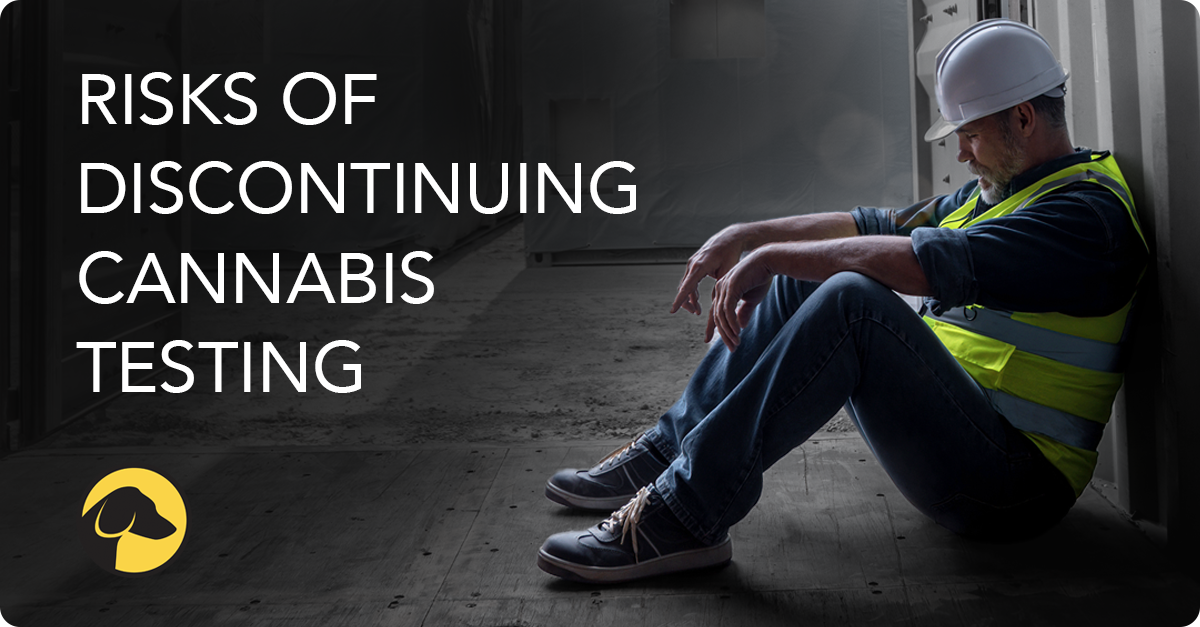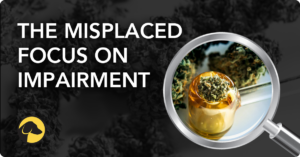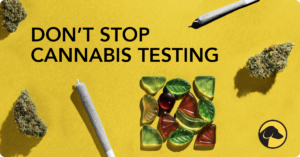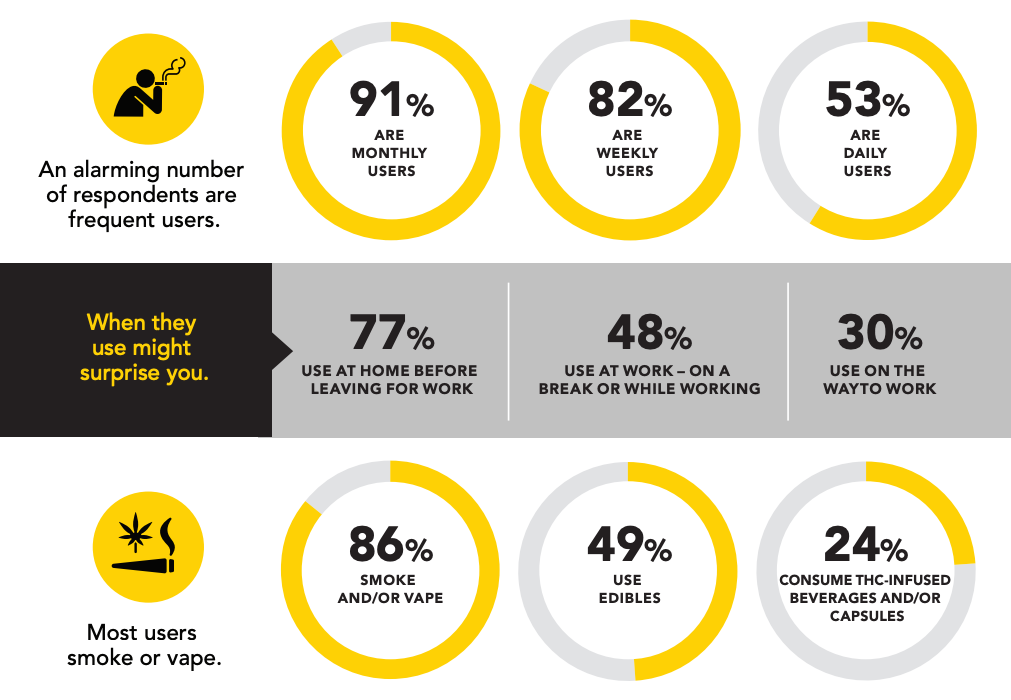
Dropping THC Testing is Risky Business
Hound Labs’ recent survey confirms what we already know – employees are using marijuana at work, and many survey respondents are using it every day. Most of us have observed workplace use at some point, seeing an employee smoke during a lunch break or noting the effects of recent use. But our recent survey data puts these observations into stark reality.
As it stands, nearly half of respondents admit to using marijuana at work, either during breaks or even while actively working. More than 30% use cannabis on their daily commute. These numbers underscore the prevalence of cannabis consumption and the blurring line between personal and professional boundaries.
RISK OF IRREVERSIBLE DAMAGE
It may be tempting to turn a blind eye to workplace use, but once an incident occurs, the damage can be irreversible. In a 2016 Amtrak crash, an engineer tested positive for marijuana after a derailment killed two maintenance workers and injured countless others. Following the accident, the engineer told investigators he had seen something on the track but couldn’t respond in time to avoid the crash.
More recently, a study in JAMA Health Forum published findings “consistent with the hypothesis that recreational marijuana impedes cognitive function and care among younger workers.” The study revealed that the adoption of recreational marijuana laws correlated to a statistically significant increase in workplace injuries among employees between the ages of 20 and 34. The laws were associated with a 12.9% increase in workplace injuries per 100 full-time workers. Two and three years after the adoption of the laws, injuries were significantly higher.
NECESSITY OF THC TESTING
The adoption of recreational cannabis laws has increased the drug’s access and use, with marijuana now accounting for more than 50% of all positive drug tests, according to Quest Diagnostics. In states where recreational marijuana use is legal, employers are facing a critical question – ‘should we continue testing for THC?’ Among our survey participants who report using cannabis at or before work, 65% live in states where recreational marijuana is legal, and 60% work for companies that do not drug test.
When employers stop testing for marijuana, they remove an effective deterrent to workday use and explicitly assume added safety and performance risks as a result. In a survey conducted by the National Safety Council, more than half of companies that stopped testing for marijuana testing reported increased workplace incidents and reduced performance among employees.
The justification for cannabis testing becomes increasingly clear when examining additional risks. In 2021, U.S. employers paid more than $58 billion in direct workers’ compensation costs for disabling, nonfatal workplace injuries, according to Liberty Mutual’s Workplace Safety Index. This figure does not reflect indirect costs such as replacing employees, repairing equipment, investigating incidents, and implementing corrective measures. Without a test to indicate whether employee drug use was an influencing factor, employers assume full responsibility for the costs of these accidents.
Based on what we now know about the prevalence of workday use, its correlation to workplace injuries, and its impact on post-accident positivity rates – the clear answer to whether employers should continue THC testing is unequivocally ‘yes.’ Regardless of the legal status of marijuana, employers are obligated to ensure safe and drug-free workplaces and to uphold the trust of their stakeholders, customers, and employees to foster productive, compliant, safety-led businesses.
It may be only a matter of time before the insurance industry adjusts workers’ compensation and property and casualty insurance policies to reflect the added safety and performance risks and costs of their clients who have stopped testing.
THE SOLUTION FOR WORKDAY DETECTION
In an environment where marijuana is more accessible than ever, testing is the very tool employers need to leverage to combat increasing use and its associated risks. New laws prevent some employers from acting on cannabis tests that detect off-duty use; they also limit tests that measure THC metabolites, or by-products that can remain detectable long after use. The solution to the predicament is not to discontinue testing, but instead to reframe policies that deploy a new testing method aimed at preventing on-the-job use.
Cannabis breath testing provides a window of detection specifically tied to the workday. While THC can be detected in oral fluid, urine, and hair for days and even weeks after use, THC molecules remain in the breath for only a few hours. By limiting detection to the workday, breath serves as the only testing method to fully align with legislation that prohibits the discrimination of off-duty use.
GET STARTED WITH BREATH TESTING
Employers can use breath testing in a variety of scenarios, from random to post-incident to reasonable suspicion testing. A negative test indicates an employee has not used cannabis at or before work, while a non-negative result indicates use associated with the workday. The best practice is a strategy that employs regular testing throughout an employee’s tenure to serve as a deterrent to use at or before work.
A breath test that reflects only workday use can help you avoid risks associated with dropping THC testing. To learn more about cannabis breath testing, connect with our team for more information.

April 25, 2024
By STEVE LEWIS
Chief Executive Officer
Share












